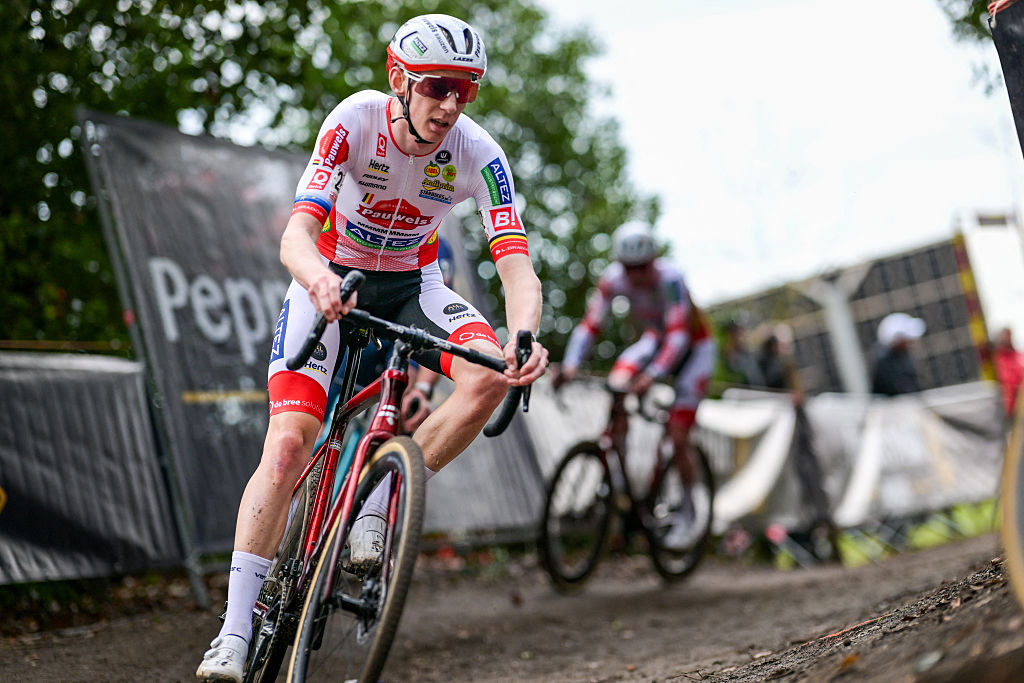Team Rwanda in Rio: Racing a world away
A little team dreaming big
The latest race content, interviews, features, reviews and expert buying guides, direct to your inbox!
You are now subscribed
Your newsletter sign-up was successful
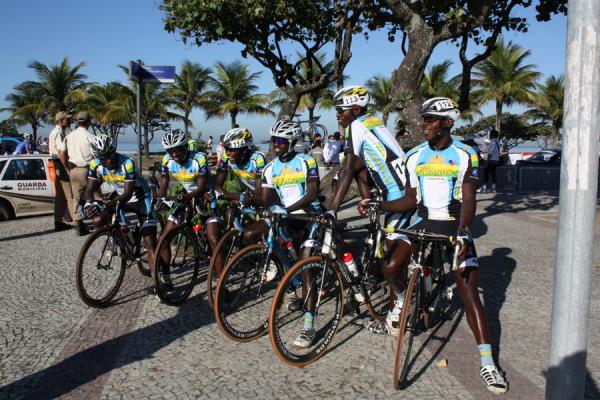
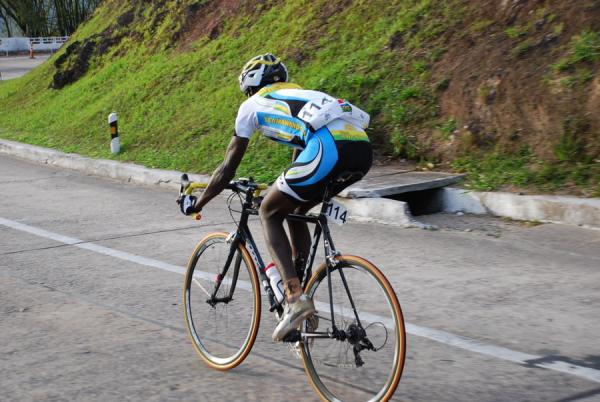
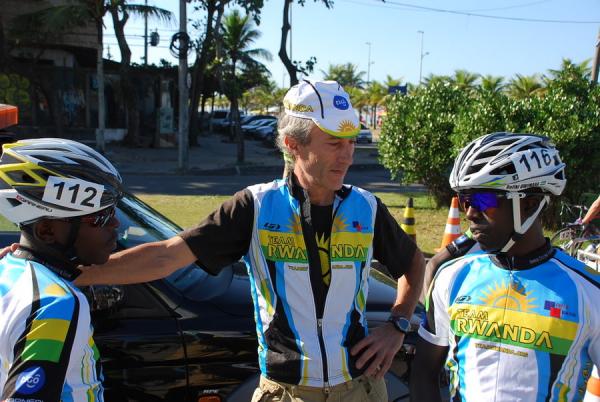
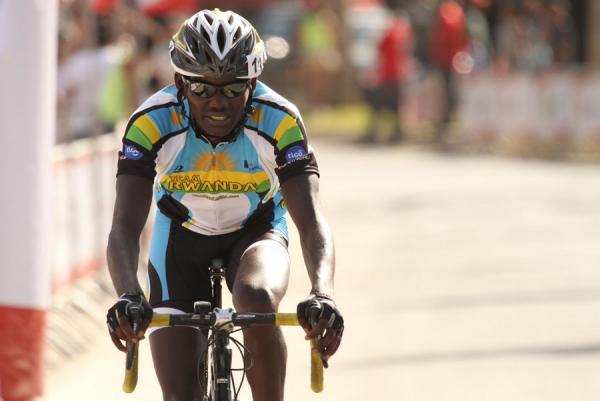
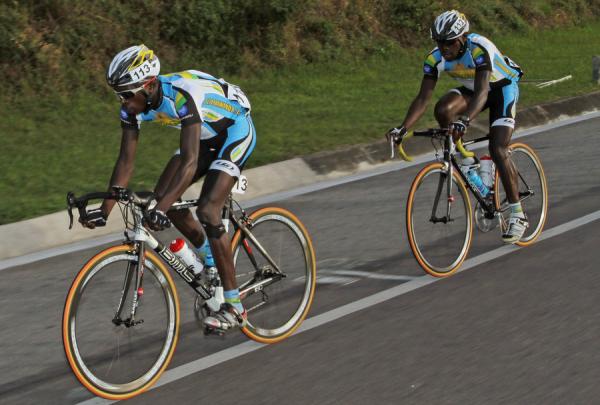
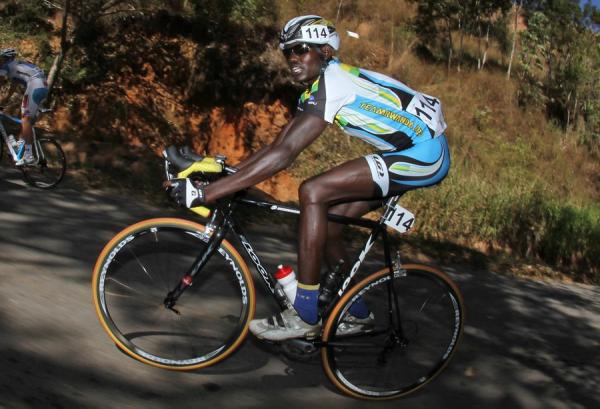
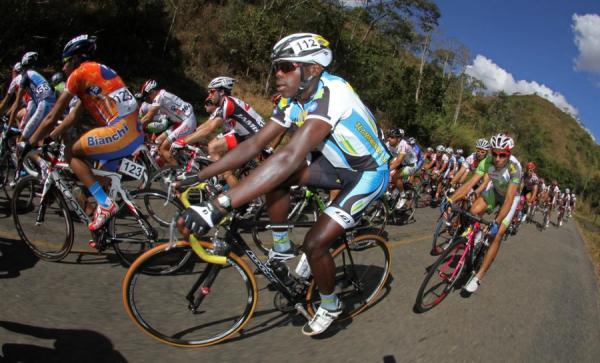
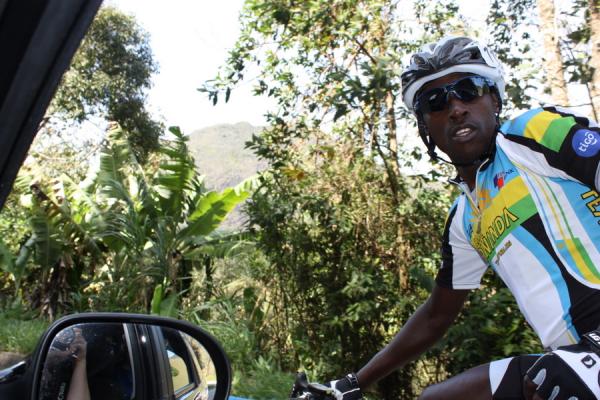
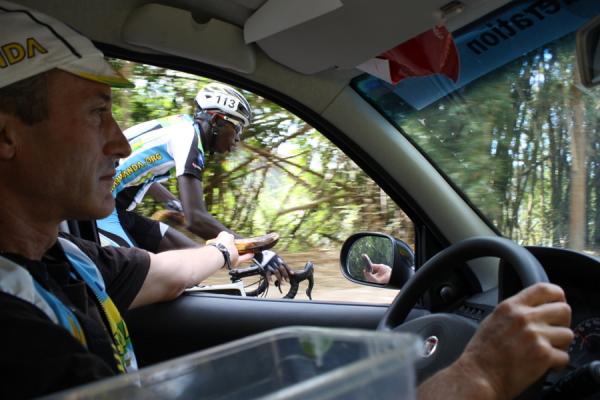
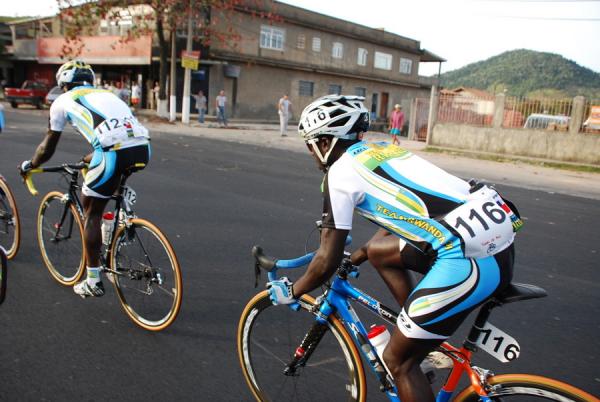
Rwanda, a landlocked, high altitude, nation of Africa. Rwanda, site of a devastating 1994 genocide. The racial divisions that brought the country to its knees, now gone, Rwanda has moved on and is now one of the safest countries in Africa. But in Team Rwanda, nine cyclists brought together by Jonathan ‘Jock' Boyer, you find young men trying to write a new history for a nation scarred by its past.
Nathan Byukusenge and Nicodem Habiyembere are two brothers on Team Rwanda. Like all their teammates, genocide has left an indelible mark on their lives – their father was just one of the many to have died. Estimates on the total number of dead range from between 500,000 to one million.
9,000 kilometers away from their home, Nathan and Nicodem recall seeing Brazil on a map, "maybe once", the latter quietly told Cyclingnews.
Along with Emmanuel Rudahunga, Gasore Hategeka, Obed Ruvogera, and Rafiki Uwimana, Nathan and Nicodem made the long journey to Brazil for last month's Tour do Rio. While Colombia's EPM-UNE may have been the dominant team, it was the Rwandans who were the stars.
Boyer would flip through the official results following the fifth and final stage back in Rio de Janiero and marvel: "Hey, I got three riders on the first page! This is excellent," clearly chuffed at their achievements. Nicodem was Team Rwanda's best-placed finisher in 38th overall, his brother nine seconds back in 39th, Hategeka was 52nd, Rudahunga 58th, Uwimana 74th while Ruvogera failed to make the time cut on Stage 1.
"We're not here to make up the numbers," Boyer said as the Tour do Rio kicked off to the south of the city – and he meant it.
Consider that it's instinctive for these riders to fight for every inch of their being. Stage 4, a 193 kilometre trek from Teresopolis in the mountainous northwest to Rio das Ostras on the coast to the north of Rio de Janeiro was a world-class parcours with a long descent in the opening kilometres. While Rwanda is at altitude and the athletes adapt easily to climbing, descending is another matter entirely with the land dotted with hills, "we don't have real mountains," explained Boyer.
The latest race content, interviews, features, reviews and expert buying guides, direct to your inbox!
By the end of the long and winding descent, which would by no means be the worst of the day, Rudahunga had lost three minutes to the peloton and Boyer had given up. Worse still, Rudahunga was riding alone. Isolation is not an easy beast for Rwandan's to master and Boyer has many anecdotes of how his athletes are constantly amazed that the American has a room all to himself when travelling to races.
There may have been a lot of coaxing from the car, but Rudahunga made it back to the peloton after a 20 kilometre chase. The 23-year-old wouldn't make the same mistake on the second descent of the day and stayed safely in the second group, eventually finishing 60th, 22 minutes down although not the worst of his team.
Those selected mostly made a meagre living riding taxi-bikes, their rudimentary machine sometimes carrying 200-kilo loads. Over the next two years Boyer set about transforming them into riders, educating them in everything from bike handling, to English and hygiene.
In 2007, Niyonshuti took on his first race, South Africa's Cape Epic. It was Niyonshuti's first time on a mountain bike having only ridden one two days prior to the event – he and Boyer finished 33rd.
Funding was on a month-to-month basis and Niyonshuti was showing some signs of trepidation. Ask Boyer what the biggest thing he's learnt over the last few years, and he considers for a while before answering.
"Patience. Things don't happen overnight," he says before emphasising his previous statement. "Good things don't happen overnight. I think one of the biggest things that helped our impact has been our consistency, because that was one of the biggest fears with Adrian because it was like ‘when are you going to leave?' NGO's come for a year or two then they go home with a feel-good factor thinking that they've changed something."
Team Rwanda is very much a long term project and now survives on a budget of around $220,000 a year, most of which comes out of the United States from corporations such as Amway and Walmart. Most of Team Rwanda's starts come in Africa where Boyer says there's "Too few races and at the other races, there's just such a toxic atmosphere."
The corruption which plagues many African governments exists also in sport.
"In many of the African countries we go to, the organisers are not really there for the riders and they don't even care about the riders," explains Boyer.
Moving ahead
With a Rwandan Cycling Federation that is eager to move ahead in the sport, and with the help of the UCI where Boyer's riders have been able to attend the World Cycling Centre in Switzerland, the team is now reaching their make or break moment. Niyonshuti has qualified for the 2012 London Olympics in both mountain bike and the road race and Boyer's email is being bombarded with offers from Europe.
Team Rwanda and Boyer's best chance of keeping Niyonshuti within their own system is with a UCI Continental licence and it's hoped that the required funds should be raised to mount a bid in the next three months.
"If I get the Continental team and enough funding then I want to keep him – I don't want him to be just a novelty on a team," Boyer tells Cyclingnews. "He's not strong enough to be a team leader – I don't want him to be lost.
"Can you imagine one of these guys spending three months in Belgium?" he asks rhetorically.
The bottom line is that Team Rwanda needs more racing in Europe, and following their experience at the Tour do Rio, Boyer is also hoping to race more in South America.
Boyer's immediate goal is to get a Continental team which would be based out of Rwanda, up and running. Half of the contingent would need to be Rwandan, but then "I can take Eritreans, Kenyans, Ethiopians," he says. "I want to start that next year with the goal at some point to do the Tour [de France] in the next four of five years."
With some of his older riders now on the brink of retirement, they will move into coaching and training roles within the team. The learning curve that happens only with experience is well under way which means that Boyer will be able to step back from his current role slightly, where he spends the majority of the year living in Rwanda.
"Their life will be good because they'll still be involved," Boyer says of the riders due to step away from racing. "Hopefully, I'll be able to leave and get out of there and just have them run it and just help troubleshoot stuff from the States and help them out that way. If I can't leave and have it sustain itself then there's no point in even being there. They cannot be dependent on me."
Racing a world away
Wide-eyed and wearing huge smiles, Byukusenge, Habiyembere, Hategeka, Ruvogera, and Uwimana enthusiastically soaked up their experience in Rio de Janiero. Patiently they stood with their bikes as their world was lit up with camera flashes at the beginning and end of each stage at the Tour do Rio.
Uwimana was genuinely moved and albeit a little shocked at the peloton's hospitality on Stage 4 when, having spent some time away from the bunch, he caught up to another group on the road and there he was offered food and water until his pockets were full. It was an immeasurable contrast considering that when racing in northern Africa, the Rwandans are on the receiving end of abuse.
"The mentality is obviously different from Europe but it's a real healthy, competitive, respectful attitude that I need to expose the riders to more," Boyer says of Team Rwanda's Tour do Rio experience. "If we stay in Africa, they'll never get to the next level – absolutely never."
Boyer is hopeful that Team Rwanda's efforts will really change the face of racing in Africa.
"What we've done in five years is really remarkable and it shows the rest of the Africans that hey, they've got the talent and I think that it's stimulating even the other countries to do better," he says matter-of-factly. "They [African nations] need to realise what they've got and if they spend more time on races and riders, they'll get to a level that they never would have dreamed would be possible before – and I think that's really important. Team Rwanda is really demonstrating that. This race has allowed my guys to dream big."
As a sports journalist and producer since 1997, Jane has covered Olympic and Commonwealth Games, rugby league, motorsport, cricket, surfing, triathlon, rugby union, and golf for print, radio, television and online. However her enduring passion has been cycling.
Jane is a former Australian Editor of Cyclingnews from 2011 to 2013 and continues to freelance within the cycling industry.
